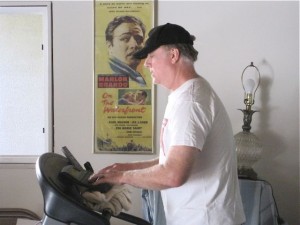Just a few short years ago, I began attending writers’ conferences as an unpublished newbie—tentative, worried that I wasn’t a “real” writer, afraid of taking up the valuable time of published authors with my utterly basic questions about the business and craft of writing. I’ve since come to realize that the attendees are friendly and open to meeting new people, everyone who writes is a real writer—whether they’re published or not—and published authors are there because they want to share their hard-earned knowledge with those learning the ropes.
Now I’ve just returned from the Surrey International Writers’ Conference, attending a conference for the first time as an invited speaker. This time I went with a whole new set of worries—would I have anything useful to say, would I be able to speak for ninety minutes about topics that I feel I’m still learning, would the organizers think they’d made a big mistake by allotting a precious speaking slot to me? (I should have realized from the beginning that all this worry meant I was a real writer).
My new worries turned out to be as unfounded as my old ones. Many of the attendees who came to my workshops told me afterward how much they got out of them. I had so much to say in both of my workshops that I had to race to finish at the end (ironic, since one of the workshops was on pacing in novels). When I get the written evaluations, I’ll have a better idea of whether I’ll be invited to return (which I’d love to do, if any of the conference organizers are reading this).
But the one part of the conference I was really dreading was the set of three blue pencil sessions I had been scheduled for. SiWC is unique among the conferences I’ve attended in that they ask all the presenters to set aside time for attendees who would like an assessment of a few pages of their work. I didn’t ask, but I imagine they’re called blue pencil sessions instead of red pencil sessions because they’re intended to provide constructive critiques in an encouraging way.
I wasn’t dreading the sessions because I thought they would be dull or tedious. I was dreading them because I didn’t know if I was qualified to give feedback on other people’s work, and I didn’t want to dash anyone’s dreams when I saw something that needed to be edited. I know how hard it is to show a stranger the story you’ve spent hours crafting, hoping that you’ll hear how wonderful and skillful your story and voice are, but prepared for the eye-rolling and tsking over poor writing that you fear will be the first thing out of the reader’s mouth.
I’ve been that newbie writer, so I know how much courage it takes to approach me now sitting on the opposite side of the table, me with the presumed authority of just over two years as a published author. A very short two years from my end.
So I did my best to read the samples carefully and dig into what was and wasn’t working for me. I did my best to provide encouragement no matter how raw the writing was. I did my best to make those fifteen minutes count for both of us.
It ended up being one of my favorite parts of the conference. I enjoyed the one-on-one discussions with authors. I could see it in their eyes that what I was saying was meaningful to them, that they felt I was helping them to improve their work in whatever small way I could. And I learned as much as they did about what it takes to become a better writer.
That exchange was what was so great about the conference. The attendees might have thought that they were the ones there to learn, and I’m sure they left with an education and memories that will resonate for many years. But as a first-time instructor, I might have gotten even more out of the experience than they did.

